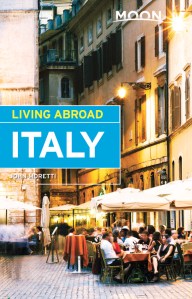Housing in Italy: Renting vs. Buying

Renting or buying a house is the essence of living abroad; it’s what separates you from the tourist. The experience of owning a home in the Italian countryside has become almost legendary, as have the headaches that go along with it. While renting an apartment is less of a responsibility, it also presents its pitfalls.
The same can be said about owning or renting property anywhere, but Italian real estate poses unique benefits and challenges. Italy has a historical claim to some of the most admired architecture in the world. This may be the reason you decided to live here. You wanted to carry your groceries from the open-air market past Baroque palaces and medieval frescoes, and step into your Liberty-style apartment building with a wrought-iron elevator shaft and bicycles parked in the courtyard. Or you wanted to hide away in a tile-roofed villa with terra-cotta floors surrounded by vineyards, where you can lean out your window to smell basil in the garden and hear the chatter of grandmothers.
These simple pleasures of domestic living in Italy make all the complications worthwhile. By complications, I don’t mean the handheld shower heads and the three-kilowatt electrical outlets. These are local idiosyncrasies that most people would say lend a characteristic touch to European living. If you were addicted to the consumer comforts of North America, such as crushed-ice dispensers and garbage disposals, you probably wouldn’t have chosen to live in Italy in the first place.
Complications, rather, are the difficulties and bureaucratic underpinnings of buying and keeping up real estate here, the archaic methods of paying the bills, and the often frustrating attitude of repair people. The good news is that these drawbacks are slowly improving.
Renting vs. Buying
Whether you should rent or buy in Italy depends, naturally, on your future plans, and especially on the housing market. Trends in Italian real estate prices have more or less mirrored those in the United States: skyrocketing in Italy in the 1990s, but crashing closer to Earth in recent years with the global crisis. It is a good time to buy.
As a rule, Italians will always buy before they rent, no matter what. The nation has one of the highest homeownership rates in Europe. Italians are relatively new to investing in securities, anyway, and the near collapse of financial markets provided them with a frightful reminder of the inherent risks there.
Add in a national obsession with conservative investing and scraping savings, and you will understand why young Italians live with their families until they are well into their 30s, even 40s. At that point they are either married or simply tired of mom and dad’s nagging and have enough money to buy some privacy. It may sound funny to an North American who moved out at age 18, but skipping the rental stage is a wise financial move for those with enough patience and humility to live at home as a grown adult.
Obviously, buying is almost always the smarter choice for foreigners as well, but there are a number of risks in Italy that can really burn you: buying in the wrong area, ignoring serious structural damage or shortcomings, or, worst of all, overlooking a legal morass. The advice that most property experts give is to rent first in an area where you think you might like to buy. If you feel the pressure to buy right off the bat, you should first get to know the neighborhood and the houses themselves by talking to the locals.
